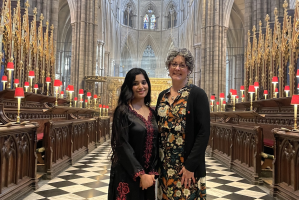Pope encourages adult stem cell research

This morning in the Vatican, the Holy Father received a group of 250 participants in an international conference entitled 'Adult Stem Cells: Science and the Future of Man and Culture', promoted by the Pontifical Council for Culture in collaboration with the US Stem for Life Foundation. The three-day meeting examined the use of adult stem cells in medicine, both from the perspective of science, and from that of its cultural, ethical and anthropological implications.
Extracts of Benedict XVI's English-language remarks are given below:
"Since human beings are endowed with immortal souls and are created in the image and likeness of God, there are dimensions of human existence that lie beyond the limits of what the natural sciences are competent to determine. If these limits are transgressed, there is a serious risk that the unique dignity and inviolability of human life could be subordinated to purely utilitarian considerations. But if instead these limits are duly respected, science can make a truly remarkable contribution to promoting and safeguarding the dignity of man".
"In this sense, the potential benefits of adult stem cell research are very considerable, since it opens up possibilities for healing chronic degenerative illnesses by repairing damaged tissue. ... The improvement that such therapies promise would constitute a significant step forward in medical science, bringing fresh hope to sufferers and their families alike.
For this reason, the Church naturally offers her encouragement to those who are engaged in conducting and supporting research of this kind, always with the proviso that it be carried out with due regard for the integral good of the human person and the common good of society.
"This proviso is most important. The pragmatic mentality that so often influences decision-making in the world today is all too ready to sanction whatever means are available in order to attain the desired end, despite ample evidence of the disastrous consequences of such thinking. When the end in view is one so eminently desirable as the discovery of a cure for degenerative illnesses, it is tempting for scientists and policy-makers to brush aside ethical objections and to press ahead with whatever research
seems to offer the prospect of a breakthrough. Those who advocate research on embryonic stem cells in the hope of achieving such a result make the grave mistake of denying the inalienable right to life of all human beings from the moment of conception to natural death. The destruction of even one human life can never be justified in terms of the benefit that it might conceivably bring to another.
"Yet, in general, no such ethical problems arise when stem cells are taken from the tissues of an adult organism, from the blood of the umbilical cord at the moment of birth".
"Dialogue between science and ethics is of the greatest importance in order to ensure that medical advances are never made at unacceptable human cost. The Church contributes to this dialogue by helping to form consciences in accordance with right reason and in the light of revealed truth. In so doing she seeks, not to impede scientific progress, but on the contrary to guide it in a direction that is truly fruitful and beneficial to humanity, ... with a particular regard for the weakest and most vulnerable.
"In drawing attention to the needs of the defenceless, the Church thinks not only of the unborn but also of those without easy access to expensive medical treatment. ... Justice demands that every effort be made to place the fruits of scientific research at the disposal of all who stand to benefit from them, irrespective of their means. ... Here the Church is able to offer concrete assistance through her extensive healthcare apostolate, active in so many countries across the globe and directed with particular solicitude to the needs of the world's poor".
"I pray that your commitment to adult stem cell research will bring great blessings for the future of man".
Source: VIS
















